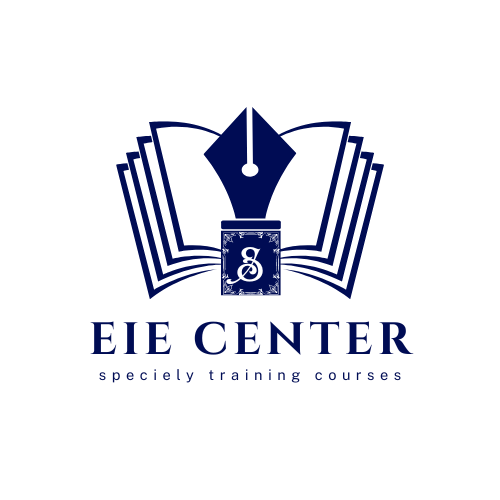Fundamentals of Finance & Accounting Training Conference

About Course
Financial skills and expertise are critical for managers across all types of organizations. A solid understanding of economic principles is increasingly essential in an era marked by a more complex business environment and a greater emphasis on financial delegation.
This interactive and engaging fundamentals of finance and accounting program is designed to bridge the gap for those senior professionals who have yet to undergo formal training in finance and feel discomfort when required to engage in financial discourse with their colleagues and finance professionals. Our Fundamentals of Finance and Accounting Course aims to demystify financial terminology and concepts, granting participants the confidence to navigate the world of finance easily.
In our unique segment tailored for aspiring MBA candidates or business professionals, we dive into the MBA Fundamentals of Accounting and Finance. This comprehensive module offers an accelerated overview of the critical financial accounting fundamentals that form the cornerstone of business education, equipping participants with the skills required for high-level financial analysis and decision-making.
Accounting Fundamentals Certificate
Upon completing this fundamentals of finance and accounting conference, participants may be eligible for an Accounting Fundamentals Certificate, demonstrating their proficiency in the core principles of finance and accounting and enhancing their career prospects in the competitive business arena.
The Finance Fundamentals and Accounting Fundamentals course provides a robust foundation for participants to understand and apply finance and accounting practices within their respective roles, nurturing informed decision-makers and strategic thinkers in finance and business.
Conference Objectives
By the end of this fundamentals of finance and accounting conference, participants will:
- Develop the ability to read and interpret financial statements.
- Engage in rigorous analysis of business performance.
- Actively contribute to cash and working capital management.
- Construct precise budgets and manage costs effectively.
- Use business cases and financing techniques to enhance decision-making.
- Grasp the essentials of financial accounting as it pertains to their businesses.
- Confidently interpret their organization’s financial signals.
- Speak and understand the language of finance proficiently.
- Comprehend balance sheets and profit-and-loss statements.
- Manage and control company cash flows intelligently.
Targeted Competencies
At this fundamental finance and accounting conference, the target audience will be able to:
- Comprehension of financial statements.
- Proficiency in financial analysis.
- Strategies for effective working capital management.
- Skills in preparing operating budgets.
- Aptitude for making informed capital budget decisions.
- Enhanced financial decision-making abilities.
Conference Content:
Unit 1: The Basics
- Understanding accounting terminology and policies.
- Recognizing accounting as an essential information system.
- Deciphering the accounting equation.
- Exploring Generally Accepted Accounting Principles (GAAP).
- Distinguishing between cash and accrual basis accounting.
- Construction of basic cash flow statements.
- Navigating an annual report with ease.
- Discussing the yearly report package contents.
- Examining the role of external auditors.
- Analyzing the accountant’s report and auditor’s opinion.
Unit 2: How To Interpret Accounts and Financial Statement Analysis
- Crafting income statements and balance sheets imbued with clarity.
- Calculating financial and liquidity ratios.
- Understanding the cash conversion cycle.
- Mastering working capital management.
- Evaluating profitability and gearing ratios.
- Employing the Du Pont Formula in performance assessment.
- Conducting comprehensive financial and non-financial analyses.
- Undertaking credit analysis with precision.
- Utilizing Z-Scores and credit ratings effectively.
- Informing bank lending decisions.
Unit 3: Planning for Profit
- Delving into the intricacies of cost management.
- Planning for cost reduction and profit maximization.
- Analyzing fixed and variable costs within income statements.
- Applying break-even analysis to business scenarios.
- Utilizing contribution margin for profitability strategies.
- Exploring costing approaches such as complete absorption, Marginal, and Activity-Based Costing (ABC).
- Implementing standard costing methods.
- Incorporating new cost management ideas based on lean principles.
Unit 4: Budgeting in Today’s Competitive Business
- Understanding the vital process of budgeting.
- The role of budgeting.
- Navigating the annual budgeting cycle.
- Identifying and addressing budgeting variances.
- Discussing various contemporary budgeting systems.
- Sharing practical budgeting tips and techniques.
- Performing variance analysis with accuracy.
Unit 5: Cash Flow and Investment Decisions
- Exploring the realms of capital budgeting.
- Calculating the Weighted Average Cost of Capital (WACC).
- Applying Present Value (PV) in forecasting.
- Determining the Internal Rate of Return (IRR) method.
- Evaluating investment opportunities with the profitability index.
- Mastering the nuances of discounted cash flow analysis.
